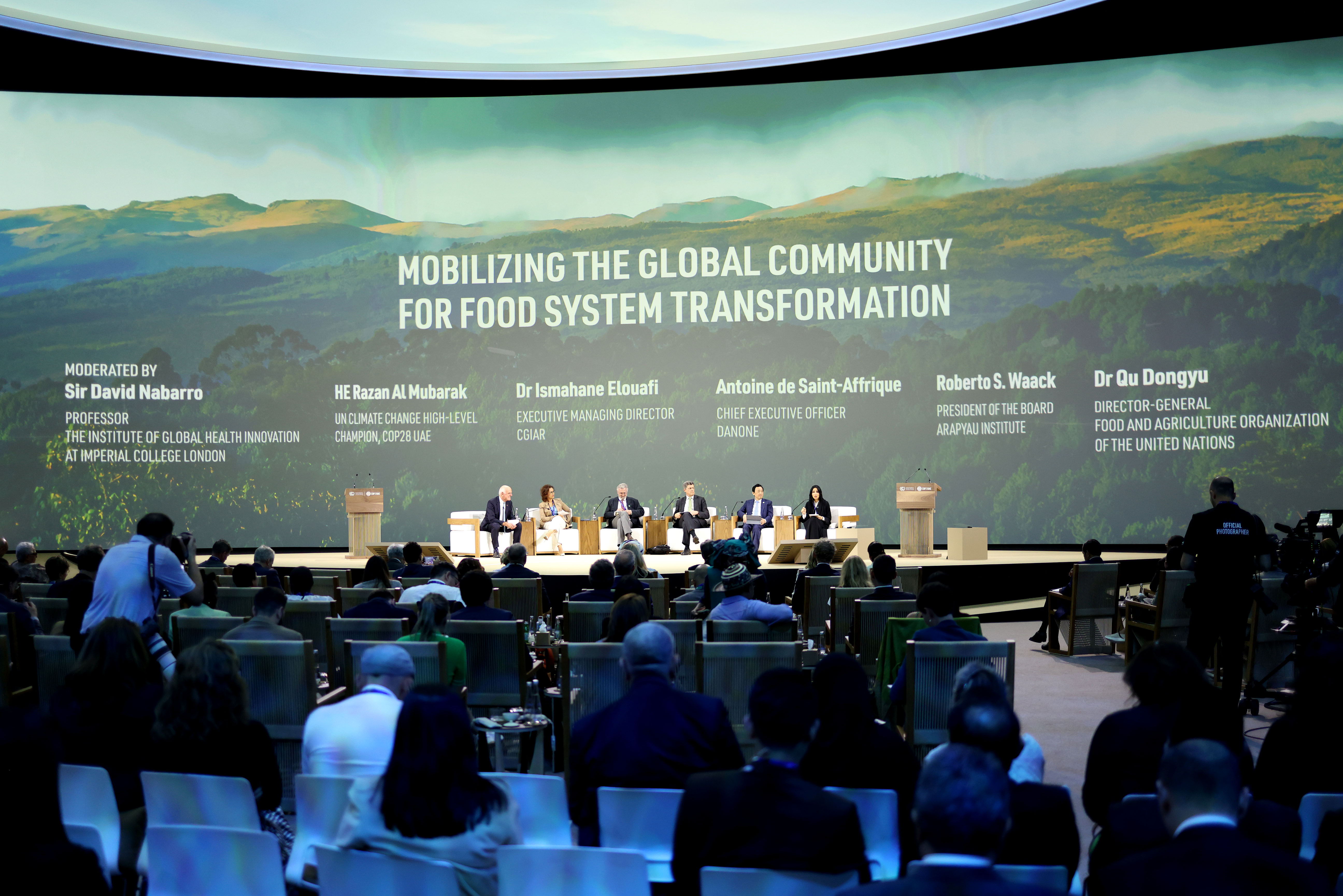OECS Heads Endorse Sustainable Agriculture Declaration at COP 28 in Line with FAST Strategy Goals
OECS Media Release
Heads of Government of OECS Member States endorsed the Emirates Declaration on Sustainable Agriculture, Resilient Food Systems, and Climate Action on December 1, 2023 at the United Nations Climate Change Conference (COP28).
The OECS’ particaption in COP28 is heavily focused on sustainability and climate action, and a regional commitment to ensure that OECS member states are positioned to recognise the United Nations 2030 Sustainable Agenda in two of the most climate sensitive industries in the Eastern Caribbean - agriculture and tourism.
The Emirates Declaration is an acknowledgement of all 136 endorsers that global agricultural and food systems resilience is increasingly impacted by climate change, and to fully recognise the terms of the UN Framework Convention on Climate Change (UNFCCC) and the Paris Agreement, governments must “urgently adapt and transform in order to respond to the imperatives of climate change”. OECS member states Antigua and Barbuda, Dominica, Grenada, St. Kitts and Nevis, Saint Lucia, and St. Vincent and the Grenadines, all parties to the UNFCCC, endorsed the declaration. The British Virgin Islands and Montserrat are non-party endorsers.
Commenting on the Emirates Declaration, Director General of the OECS, Dr. Didacus Jules said,
“This declaration is of practical importance to us; it recognises the dual role of the agriculture sector for combating climate change but also our survival as humans. Over the last few months we in the Eastern Caribbean have experienced the escalating impact of climate change on our food production. We had record breaking temperatures from May through to October which resulted in noticeable shortages of commodities such as leafy greens and vegetables. The declaration fosters global collaboration, mobilisation of technology and resources to support not only adaption but adoption of sustainable agricultural practices. It is also in line with the OECS’ vision to develop a climate resilient and smart agricultural sector.”
Endorsing the Emirates Declaration is one of the latest milestones toward the OECS FAST Strategy which was launched in 2022 as an urgent action plan to promote food security, food self-reliance, and agricultural development in the region. The FAST Strategy is the OECS response to CARICOM's goal to reduce food imports by 25% by 2025, with considerations for the particular challenges of the OECS subregion. The strategy is designed into ten key workstreams for its ten-year period.
The FAST Strategy aims to establish competitive and sustainable food and agriculture production, processing and distribution practices that will result in increased consumption of affordable, quality, and nutritious food, increased food self-reliance, and increased social and economic development, all of which are factors of the 2023 Emirates Declaration. As the FAST Strategy’s acronym suggests, OECS agricultural leaders have committed to delivering on the actions urgently, racing against the growing impacts of climate change and related hazards, which in recent times have repeatedly affected food and agriculture in the region.
Since the 2022 launch, the OECS Council of Ministers for Agriculture have conducted prioritisation and technical review exercises, national agricultural strategy alignments, and engagements with the private sector and international partners. Currently three key workstreams from the FAST Strategy have been prioritised for the next three years, namely:
a. Private sector development: production, processing and distribution through import substitution, mechanisation and shared core functions across the region
b. Transport, logistics and trade through establishing regional associations, upgrades to shipping services and infrastructure and leveraging international trade policy for food self-reliance
c. Climate resilient agriculture through climate-smart agricultural standards, biodiversity protection, and a water programme that incorporates water supply studies, water use technology and training in water systems.
